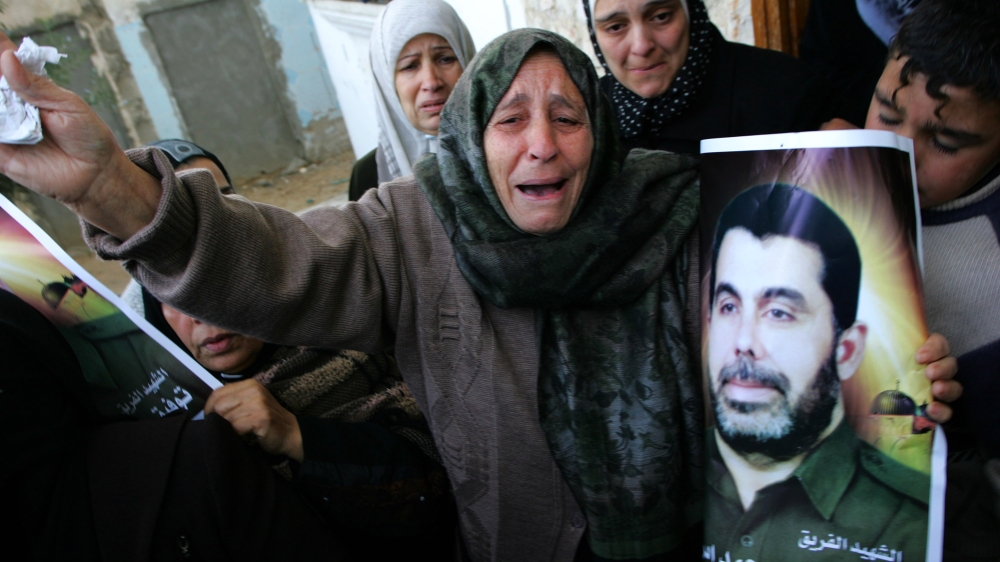‘Israel meant to kill more’: Gaza 10 years after Op Cast Lead
It has been 10 years since Israel launched its massive offensive on the Gaza Strip, which sparked global outrage as the world’s fifth-strongest army pounded the tiny blockaded enclave and its 1.6 million residents.
The 22-day land, naval and air bombardment saw some 1,400 Palestinians killed, thousands injured, and massive damage to infrastructure, including the destruction of 3,540 homes, 268 factories and warehouses and 18 schools.
Thirteen Israelis were also killed in the offensive, including four in friendly fire.
White phosphorus, which is illegal in populated areas, was fired at a central United Nations compound in Gaza City, as well as at least two other hospitals.
The first air raids targeted an outdoor graduation ceremony for cadets at the Arafat Police Academy in Gaza City.
“At 11:25am, Israeli air jets violently bombed the academy as well as tens of police stations across the Gaza Strip at the same time,” Ayman al-Batniji, spokesperson for the Palestinian Police Force in Gaza, told Al Jazeera.
“I was only a few metres away from the scene where a number of new cadets were rehearsing for their graduation ceremony when the first strike hit,” he recalled.
Around 251 policemen were killed in the first few hours of the attack and more than 700 injured, including those who lost their legs and other limbs and could never return to work, al-Batniji said.
Among the people killed was Tawfiq Jabber, the Gaza chief of police at the time.
 |
| Relatives of Palestinian police chief Tawfiq Jaber, who was killed in an Israeli air raid, hold pictures of him at his funeral on December 28, 2008 [File: Getty Images] |
‘Unforgettable scenes’
The bloody images are seared in the minds of the surviving police officers as they remember ambulances and private cars rushing to the site to evacuate the dead and wounded against a backdrop of fumes and rising dust.
Hanadi Karsou, 29, was among the first cohort of women hired as police officers at the time and the only female officer at the scene.
“I was in my office when the air attacks began,” she said. “I went outside to see that the entire place was burning. There were bodies of young officers on the ground, torn to shreds.”
“Those were unforgettable scenes,” she said. “Students and children running in the streets crying… families trying to enter the academy to see what happened to their sons.”
Karsou said she lost many colleagues who treated her presence on the force with respect. Today, the academy has more than 200 policewomen.
Another police officer, Issa Abu Khater, was also present the day the academy was bombarded and recalled the sight of blood and torn body parts in the courtyard.
“Many of them took their last breaths in front of me,” he said.
The 35-year-old spent the rest of the day at Gaza’s Shifa Hospital where he saw his wounded colleagues and identified the bodies those killed.
“My family was looking for my body in the morgue,” he said. “My brother and uncle found me and held me tight, relieved to see I was alive.”
Abu Khater was in shock and had to take sedatives in order to “absorb the horrors of that day”.
‘Sense of horror’
The attacks on December 27, 2008, occurred a week after Egyptian authorities brokered a ceasefire between Israel and Palestinian armed factions in the Gaza Strip, following a short flare-up between the two sides.
The bombings occurred very close to an area that had university buildings and schools, al-Batniji said.
“I remember the sense of horror that had prevailed among the students there,” he said. “F-16 warplanes and reconnaissance drones were firing missiles at the academy compound. They even targeted policemen at the entrances,” he said.
“They meant to kill more.”
Al-Batniji stressed that the police service, as a civil body, was unaffiliated to any of the Palestinian factions.
“We provide civil services to people as a way to maintain security here and to maintain the execution of civil law,” he said.
“Why were we targeted in this way? I lost many of my friends and best colleagues in the blink of an eye. It was a haunting day and can never be forgotten.”
 |
| Gaza police spokesperson Ayman al-Batniji says the police, as a civil service, is not affiliated with Palestinian factions [Maram Humaid/Al Jazeera] |
Various human rights bodies condemned the targeting of police officers in Gaza during the offensive.
The Palestinian Center for Human Rights (PCHR) pointed out in a report that the “251 non-combatant policemen were not members of an armed group and were not participating in hostilities; their targeting and willful killing constitutes a grave breach of the Geneva Conventions”.
The centre called for those responsible for committing the crime to be investigated, tried and prosecuted in accordance with international standards, though it also acknowledged the unlikely probability of it.
“If the occupation has taught us anything, it is that as long as Israel is granted impunity, it will continue to violate international laws [and] Palestinian civilians will continue to suffer the horrific consequences,” PCHR said.
The police academy was rebuilt in 2010, new cadets were recruited and another generation graduated. The total number of police officers in the academy now numbers 7,800.
Al-Batniji said that after the 2008-2009 offensive, the academy now acknowledges that it is within the open circle of Israeli targets.
“On the tenth anniversary of the war, our message to the world is to separate us from the conflict between the Israeli occupation and the Palestinian factions,” he said.
Despite the heavy losses incurred a decade ago, the police spokesperson maintains that the academy has returned “stronger with nothing to lose”.




